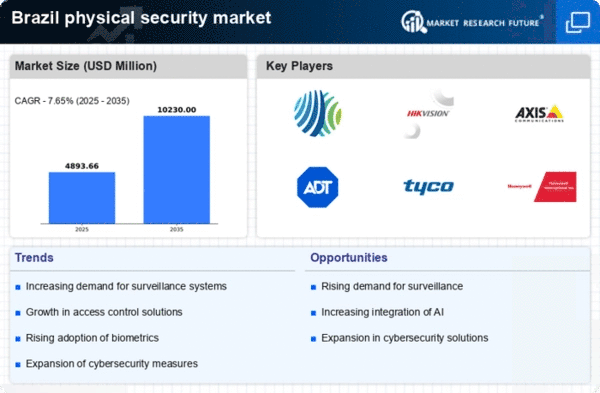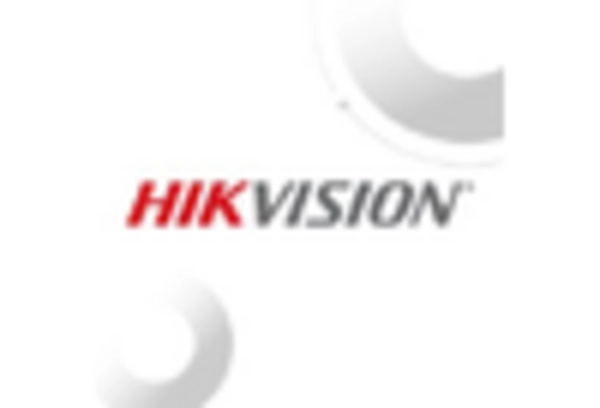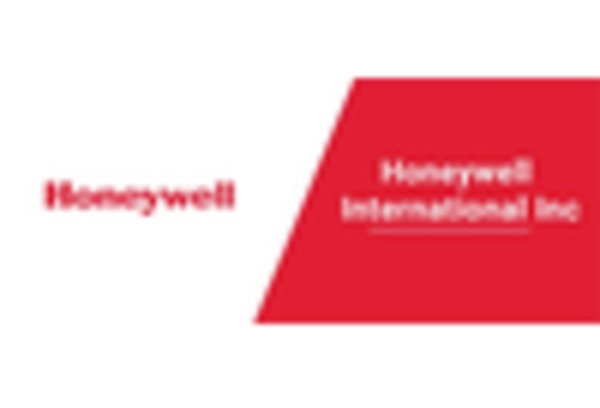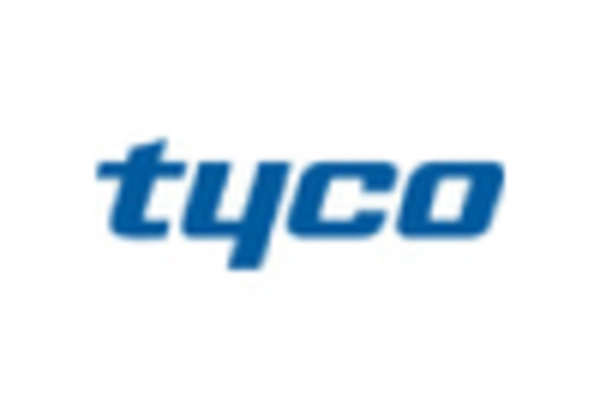Increasing Crime Rates
The rising crime rates in Brazil have become a pivotal driver for the physical security market. With urban areas experiencing higher incidences of theft, vandalism, and violent crimes, businesses and homeowners are increasingly investing in security solutions. According to recent statistics, crime rates in major cities have surged by approximately 15% over the past year, prompting a heightened demand for surveillance systems, access control, and alarm systems. This trend indicates that the physical security market is likely to expand as individuals and organizations seek to protect their assets and ensure safety. The urgency to address these security concerns is fostering innovation and competition among security providers. This trend is enhancing the overall landscape of the physical security market in Brazil.
Government Initiatives and Funding
Government initiatives aimed at enhancing public safety are significantly influencing the physical security market. In Brazil, various programs have been launched to improve urban security infrastructure, which includes funding for advanced surveillance systems and community policing efforts. The government has allocated approximately $500 million for security enhancements in urban areas, which is expected to stimulate growth in the physical security market. These initiatives not only bolster public safety but also encourage private sector investment in security technologies. As a result, the collaboration between government and private entities is likely to create a more robust physical security market, fostering innovation and the adoption of cutting-edge security solutions.
Rising Awareness of Security Risks
There is a growing awareness among Brazilian consumers and businesses regarding the potential risks associated with inadequate security measures. This heightened consciousness is driving demand for comprehensive security solutions that encompass both physical and digital aspects. As organizations face threats not only from physical intrusions but also from cyberattacks, the need for integrated security systems is becoming apparent. Surveys indicate that approximately 70% of businesses in Brazil are prioritizing security investments, reflecting a shift in mindset towards proactive risk management. This trend is likely to propel the physical security market forward, as stakeholders seek to implement robust security frameworks that address a wide range of vulnerabilities.
Urbanization and Infrastructure Development
The ongoing urbanization and infrastructure development in Brazil are key factors propelling the physical security market. As cities expand and new commercial and residential projects emerge, the demand for security solutions is increasing correspondingly. The construction of new facilities, such as shopping centers and office buildings, necessitates the installation of advanced security systems to protect assets and ensure safety. It is estimated that the urban population in Brazil will reach 90% by 2030, further intensifying the need for effective security measures. This trend indicates that the physical security market is poised for growth, as stakeholders recognize the importance of safeguarding their investments in an increasingly urbanized environment.
Technological Advancements in Security Solutions
The rapid advancement of technology is reshaping the physical security market in Brazil. Innovations such as artificial intelligence, machine learning, and IoT are being integrated into security systems, enhancing their effectiveness and efficiency. For instance, AI-powered surveillance cameras can analyze real-time data to detect suspicious activities, thereby reducing response times. The market for smart security solutions is projected to grow by 20% annually, driven by the increasing adoption of these technologies. This trend suggests that businesses and consumers are becoming more aware of the benefits of modern security solutions, leading to a shift in purchasing behavior. Consequently, the physical security market is evolving to meet the demands for more sophisticated and intelligent security measures.















